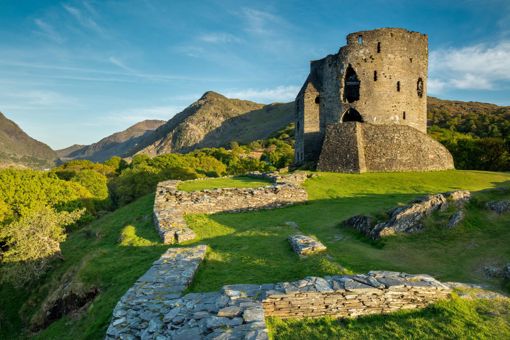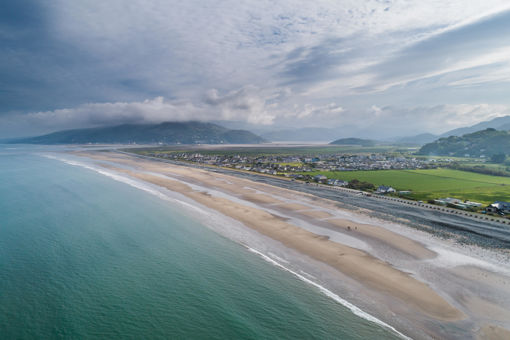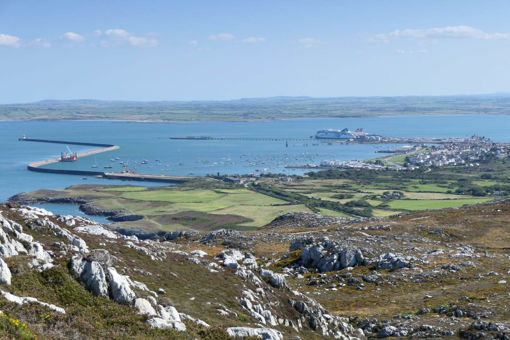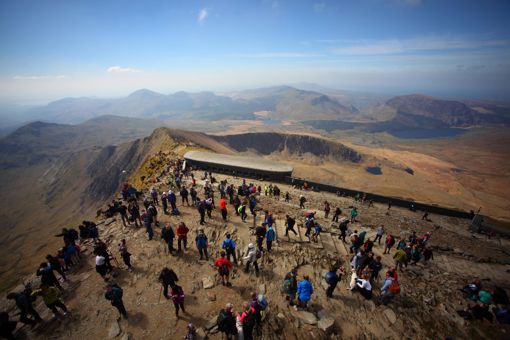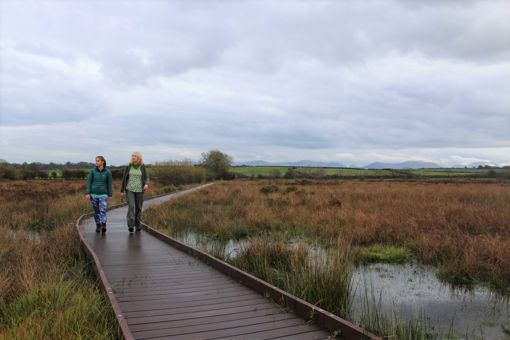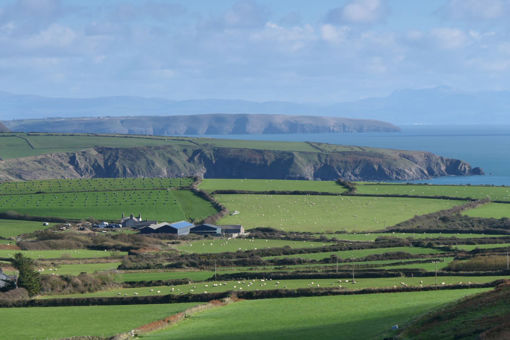Ways of working
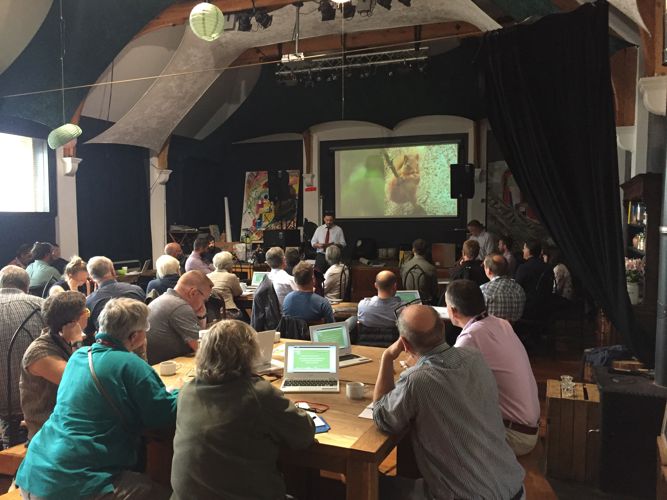
Ways of working
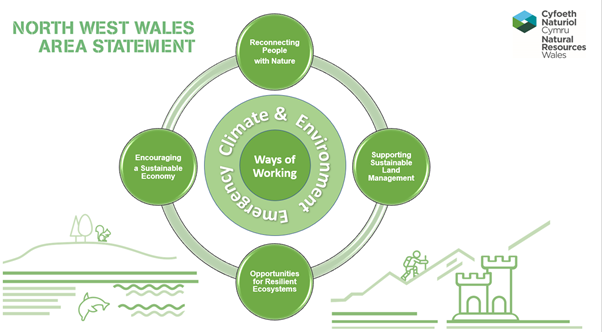
During our engagement events, stakeholders told us what they felt were the priorities in relation to how we collectively work together to develop the Area Statement for North West Wales. In practice this means:
- Communications – being open and honest about potential barriers, sharing good practice and celebrating the positives around this process
- Policy development and delivery – integrate and work with established processes such as the Local Development Plan and site regulation at a local and national level. To also tap into wider processes and not stay within the tramlines of the environmental sector
- Collection and use of data – generating, sharing, understanding and communicating the messages of each data set (and importantly identifying information gaps) about the environment and other issues across North West Wales. The aim of this is to determine the links between neighbours with a focus on the collaborative delivery of operational activity
- Facilitating working together and wider involvement – looking at ways to make improvements in the way we all work together, ranging from information to direct interventions
- How we manage expectations relating to requested resources that don’t align to the Area Statement work
- Improving understanding and opportunities for learning within organisations and communities, providing a wide range of suggestions to improve learning and understanding about North West Wales and the issues it faces. Challenging ourselves to regularly reflect and look for better ways of achieving shared outcomes
We would like to achieve the following qualitative outcomes and also develop an effective way of measuring them with our partners:
- To improve relationships
- To build trusting relationships
- To use language that is understood by all
- To take on new responsibilities
- To embed the principles of co-production
Our stakeholders suggested the following quantitative outputs:
- Number of different datasets made available
- Number of collective research projects undertaken
Number of new collaborative delivery projects under each theme undertaken across the North West Wales region at the appropriate scale
Why this theme?
To facilitate the development of the Area Statement, Natural Resources Wales (NRW) held three workshops in North West Wales during July 2019 and a session for staff. A further workshop session with staff was held online in November 2020 followed by online sessions with stakeholders in December 2020 . Based on these discussions it is clear there was support for a cross cutting Area Statement theme looking at the different ways of working to ensure a sustainable and engaging process through the development of the whole North West Wales Area Statement. More information and detail on this can be found in the Introduction to the Area statement.
During the second engagement event, participants identified wider issues in the North West as the following:
- Agency and personal power – People want to do something to change what’s happening around them but feel unable or confused about doing so
- Governance jurisdiction power and direction – Structures exist, but stakeholders often are not sure how to effect change
- State of the environment – There are differences of opinion about the threats and priorities regarding the state of the environment
- Data and evidence – Needs to be made more widely available, and people need to be involved in the collection and dissemination of data and information in order to improve understanding about the state of the environment – in a virtuous circle
- The need to take both thematic and geographical approaches on the path to next steps. For example, in Abergynolwyn, it was clear those in South Gwynedd felt a strong geographical centre of gravity – something that was also apparent in Holyhead and Blaenau Ffestiniog.
To inform this theme we have considered:
- Local knowledge from a series of structured independently facilitated workshops across North West Wales
- The priorities set in the Natural Resources Policy; Delivering Nature-Based Solutions, Increasing Renewable Energy and Resource Efficiency, Taking a Place-Based Approach
- Information from the State of Natural Resources Report (SoNaRR) on ecosystems and their resilience, and the risks to the benefits they provide
- The well-being assessments and plans, and the priorities that are emerging through Gwynedd and Anglesey and Conwy and Denbighshire Public Service Boards
Maturity of discussion
The maturity of discussion analysis undertaken by the independent facilitator indicates in some areas the themes have developed further than others at this stage e.g. sustainable tourism and opportunities for resilient ecosystems. See the full report on Facilitation and Engagement Support, September 2019, Wellbeing Planner.
We wish to continue to develop on these initial discussions, developing actions where ideas are more developed whilst starting new conversations once our theme focus groups have had time to establish and develop each theme in more detail. See next steps for more details.
Issues identified by stakeholders
- SoNaRR has high level indicators of change likely to develop slowly and not in response to local or regional action
- Third sector organisations are struggling to survive yet vital in helping develop and deliver priorities in the Area Statement on the ground
- Simple funding mechanisms are needed with flexibility over financial years
- The need to challenge and map out the interpretation of legislative frameworks which promote conflicts or delay action e.g. where proposed outputs may be at odds with each other like policy and legislation around deep peat and forestry
- Look at the governance of how local decisions are made and work at changing things so that communities are at the heart of decision-making and action
- Translating aspirations of co-production into organisational culture such as NRW and other public sector partners e.g. devolution of decision-making on requests arising from local needs to a local level
- Developing a one-stop-shop approach for permits of a single project (for example, hydro schemes), making sure that cumulative impacts on waterways are considered when hydro schemes are proposed
- Making SMNR a real and tangible priority for communities in North West Wales
- Macro approach to strategic and political changes identified alongside specific suggestions relevant to individual interests
- Role of the Area Statement to evolve to provide a clearing house where different levels of discussion can take place
- Alongside an ambitious society with a training and upskilling skills programme, our capacity to further work together intelligently and with better mutual understanding is possible
- Review who has been present at the consultation events and spot the gaps to ensure there is a representative cross section from different communities present
- Role of the Area Statement to evolve to provide a clearing house where different levels of discussion can take place
- Appreciate and understand one another’s aspirations; working in co-production needs non-competitive funding approaches
- We collectively need to find out and agree what we can work together on locally that delivers the aspirations of the Area Statement themes
- To start the solution-focused process, it is necessary to use other networks, including community renewable energy groups, town and community councils
- Ensure those outside environmental groups and organisations are involved
- Learn one another’s terminology e.g. connectivity and ecosystems
Opportunities identified related to this theme
Stakeholder vision for this theme so far:
- Develop the vision for 'Ways of working' with objectives and targets that we can all start working towards
- Make sure that we know what we are doing now, so that we can learn and work better together. To do this, we need to map out existing projects, opportunities and funding mechanisms
- Develop a list of principles that we can all use to make sure we are thinking of others, thinking differently in our business as usual and think about opportunities for new projects
- Identify opportunities for new research helping us take a place-based approach and develop the North West Wales Area Statement in line with theme priorities
- Ensuring we work together to expand the network involved in this process
- For individual organisations, set out organograms and area of interest maps to facilitate the right experts, decision makers, and engaged stakeholders at each stage of the collaborative process. This will help identify gaps and further work required to ensure effective delivery
- To appreciate, respect, support and acknowledge the contribution of each partner’s aspirations
- Support a better understanding of co-production, through case studies of good practice and training. To also include a macro view of the strategic political change alongside suggestions relevant to individual interests
- Accommodating the many networks in other areas, streams and silos of work, it’s important to create a local forum for knowledge sharing e.g. identify the problem and work collectively with stakeholders to identify what needs to change
Overcoming issues together
- Communications – being open and honest about potential barriers, sharing good practice and celebrating the positives around this process
- Policy development and delivery – integrate and work with established processes such as the Local Development Plan and site regulation at a local and national level. To also tap into wider processes and not stay within the tramlines of the environmental sector.
- Collection and use of data – generating, sharing, understanding and communicating the messages of each data set (and importantly identifying information gaps) about the environment and other issues across North West Wales. The aim of this is to determine the links between neighbours with a focus on the collaborative delivery of operational activity.
- Facilitating working together and wider involvement – looking at ways to make improvements in the way we all work together, ranging from information to direct interventions.
- Managing expectations relating to resources that don’t align to the Area Statement work.
- Improving understanding and opportunities for learning within organisations and communities, providing a wide range of suggestions to improve learning and understanding about North West Wales and the issues it faces. Challenging ourselves to regularly reflect and look for better ways of achieving shared outcomes.
What would success look like?
- Good news stories about the environment, farming and community groups
- Local networks sharing knowledge effectively
- Adopting a local place-based and empowering approach. This includes encouraging innovative solutions and the testing of different of approaches to identified local issues. It should also be considered that actions need to be integrated and applied consistently both at a local level and within a national and international legislative framework
- Actions developed with long-term aims of without changes dependent on political changes
- Data and evidence of impact is routinely collected about funded schemes and made publicly available
- One of the roles of the Area Statement is to include shared evidence provided from engagement with stakeholders, which should be used as a baseline for all
- More collaboration is needed from both new and existing local groups so that other stakeholders can work with them effectively. For example, the Tywyn Beach Guardians in the delivery of local projects
- All the themes are delivered through collaborative funding bids and innovative approaches that share resources and use opportunities for international projects, such as National Heritage Lottery Fund, Interreg, LIFE and other local grant opportunities where possible
- Opportunities to spend time in one another’s organisations learning and sharing
- To learn from other Area Statement regions and reflect on how the Area Statement themes are embedded into the work plans of all sectors, stakeholders and partners:
- Overlapping work areas with neighbouring Area Statements (North East Wales, Marine and Mid Wales) are known and built upon
- Area Statement content and stakeholder involvement is regularly reviewed and good and bad practice is used to inform the process and help participants learn in order to co-produce resilient environments, communities and economies in North West Wales
- Overlapping work areas with neighbouring Area Statements (North East Wales, Marine and Mid Wales) are known and built upon
There are various models that we can look at in developing the North West Area Statement processes under the Ways of Working theme.
“Various terms are used to describe collaborative approaches to service delivery in the UK e.g. outcomes focus, asset – based, person centred, service user involvement, co-production etc. What they all have in common is an underlying philosophy which values individuals, builds upon their support systems and considers their place in the wider community. This approach requires a move away from service-led or top down approaches to one of genuine citizen empowerment, involving service users and their communities in the commissioning, design, delivery and evaluation of services”
- Ruth Dineen, Director of Co-production Training UK, Production and Service delivery: Strategies for Success, June 2012
At the heart of the 'Ways of working' theme, as well as across the Area Statement process more generally, collaboration with others in the commissioning, design and delivery of actions identified across the North West Area Statement and evaluating our collective actions to embed a continually developing delivery process is evident.
Benefits
This theme was developed as a result of stakeholder feedback over the need to understand and embed new ways of working, alongside measuring the short, medium and long-term impact that the North West Area Statement will have.
This theme is at the heart of everything we need to do and that is why it is the second cross cutting theme.
Who have we worked with to date?
- During the initial development of the Area Statement, Invitations were sent to over 450 people and over the three workshops held, 100 people attended and contributed to the discussions. We have developed the theme at those events and have been trying different ways to communicate with stakeholders to encourage continued involvement and interest in the local Area Statement
- A second round of workshops were held between November and December 2019 to build on the previous discussions. Natural Resources Wales (NRW) has also spoken with partners and listened to their thoughts and feedback: including National Parks Authority meetings, Farming Union meetings and PSB workshops to help develop the content of the themes.
- Over 500 invites went out for the second round of workshops in November and December 2019 with over 100 people in attendance.
- A series of online workshops were held in November and December 2020 where further discussions were focussed around each theme.

Our stakeholder analysis
From our initial stakeholder analysis, NRW identified 500 potential stakeholders with an interest in the Area Statement process in North West Wales. We recognise that stakeholder lists are dynamic and will change at different times throughout the process, therefore we have relooked at gaps identified from engagement and we continue to update our master stakeholder lists.
Key players
Broadly defined as the partners that work with NRW to deliver the Area Statement. These are people we’ve had face-to-face or online meetings with, and who attend our events. Similarly, we attend their events. Key players will have their own networks and resources to add to the Area Statement and will have their own strategies and policies to integrate within the process and towards any outcomes.
People and organisations to keep actively involved
Broadly defined as deliverers and doers - it’s probably within their day job. These people are local facilitators: they will know someone who can help, they will have expectations about support, funding and resources, they will mostly want to help and they will have a lot of evidence, local data and expertise.
People that need to maintain an interest – two-way communication
Broadly defined as the people without direct involvement, but who have a local interest and local influence.
Keep informed – one-way communication
Broadly defined as people and organisations that are recipients of information. We can broadcast to them, but they will expect to feedback during any exchange of information.
NRW wants to keep this stakeholder analysis under review and broaden it out to wider stakeholders as we develop the process. We recognise the Area Statement process matures into delivery and evaluation phases, that stakeholders’ interest will also change, so we will continually revisit the stakeholder analysis at different stages of the Area Statement process.
The independent facilitator (the Wellbeing Planner) concluded that it is clear from engagement events and associated feedback, that the Area Statement process is new to everyone and represents a change of how NRW has worked in the past - requiring an adjustment by everyone involved.
With issues around clarity of the role, trusting the process and uncertainty of change the Drexler and Sibbet Team Performance model (forming, storming, norming and performing model) provides a tool to assist the development of the North West Area Statement. Of interest are the first four stages in developing a team (orientation, trust building, goal clarification and commitment). This is the starting point for work with the theme focus groups and as the work develops and moves closer towards the (implementation, high performance and renewal) phases.
What are the next steps?
We will develop the area wide vision for this theme with stakeholders– with a broad remit and wide representation. We will identify potential partners and interested individuals/groups, gaps in knowledge and linkages with evidence, local strategies and action plans.
From this will be able to engage with and enthuse a broader group of stakeholders beyond the wider environmental sector in a targeted way and with a stronger focus on involving and engaging local groups and individuals. This could mean a variety of approaches, including: social media, traditional media, community meetings, drop-in sessions and the strengths of our partners so that we’re all working together to deliver the Area Statement vision and ambitions.
How do we think the areas of work we’ve proposed will help deliver SMNR?
Co-producing the Area Statement and the priority actions means sharing the responsibility with others for the design, content, actions, delivery and monitoring of the Area Statement for North West Wales. We will build on known best practice and gain an understanding of the needs of others. By pooling our resources together, it will allow us to develop new ways of working that are smarter and will benefit the whole of the North West Area Statement work.
We intend to look at new methods of measuring how much impact our actions have had for each theme. We will test our approach to see if it works or not. We will then be able to effectively measure how much change has occurred before and after our activities.
It is possible to look to other sectors and countries to look at detailed theories of change. The human behaviour change model is derived from a US Medical model and is an example of the many approaches this theme may consider in developing a behaviour change model for North West Wales.
Performance indicators and base line information must also be explored in order to establish effective ways of measuring the actual change that has occurred from trialling different interventions across all the North West Area Statement themes.
“Organisations need to better understand and incorporate behavioural insights to achieve their goals. Given the complex nature of problems and the difficulties in testing behavioural insights, the best way to turn behavioural science insights into real change is to close the gap between science and practice, and truly work together”
How do people get involved?
We welcome opportunities for the public to engage with us at any stage of the Area Statement process.
There is also a feedback form and an Email address: northwest.as@cyfoethnaturiolcymru.gov.uk should you wish to write to us with your ideas for developing action under this Theme.
To help as the facilitators of this process, NRW will:
- Work on certain aspects of the conversations that came out of the Area statement stakeholder engagement that identified opportunities and challenges to trial different approaches and develop new ways of working.

